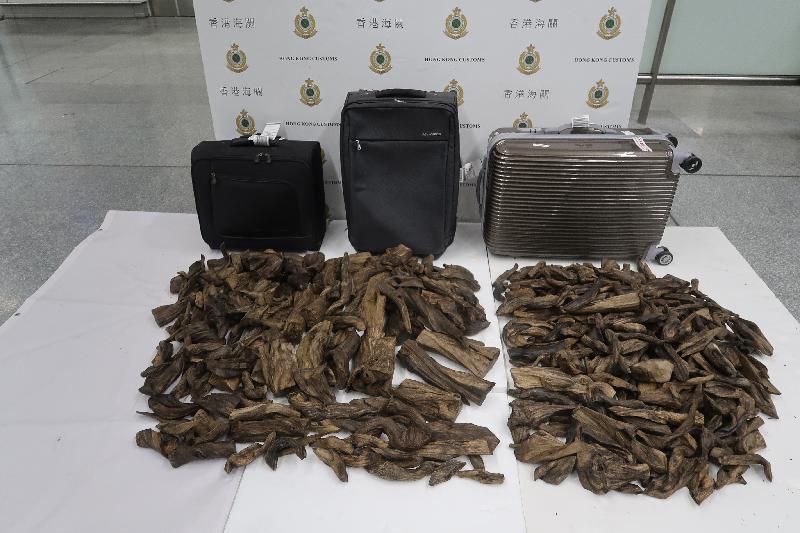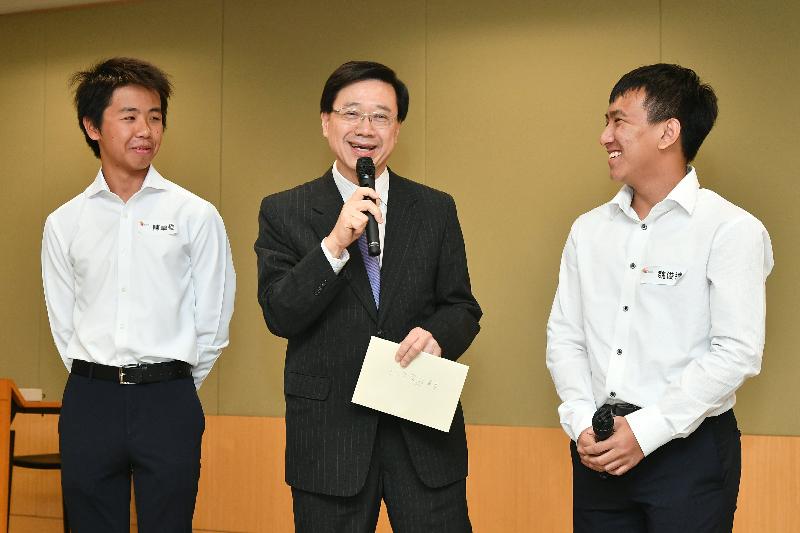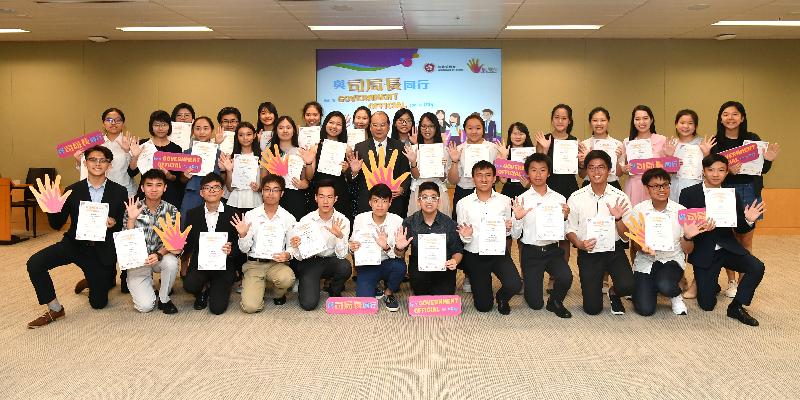CHP investigates three additional local cases of dengue fever
The Centre for Health Protection (CHP) of the Department of Health is investigating today (August 16) three additional local cases of dengue fever (DF) and again urged the public to maintain strict environmental hygiene, mosquito control and personal protective measures both locally and during travel.
"The CHP is highly concerned about the recent seven local cases confirmed within a short period of time and has enhanced surveillance through various platforms. Tracing of source of infection is in full swing. We are also working closely with the Food and Environmental Hygiene Department (FEHD) to prevent the spread of infection," a spokesman for the CHP said.
The first case involves a 31-year-old male patient with good past health, who developed fever, myalgia and rash since August 9. He sought medical attention at the Accident and Emergency Department (AED) of Queen Elizabeth Hospital on August 15 and was admitted for treatment today. He has all along been in a stable condition and his blood sample tested positive for dengue virus serotype 1 upon laboratory testing.
Initial enquiries revealed that the patient lives in Wing Yiu Street in To Kwa Wan. During the incubation period, the patient had travelled to Zhongshan in Guangdong, who also had visited the barbecue area at Lion Rock Park for barbecue. However, he did not recall any mosquito bites. This case is tentatively classified as a local case.
His travel collateral and home contacts have remained asymptomatic and have been put under medical surveillance.
The second case involves a 61-year-old female patient with good past health, who developed fever, malaise, cough, myalgia and rash since August 12. She sought medical attention at the AED of Kwong Wah Hospital (KWH) on August 15 and was admitted for treatment today. She has all along been in a stable condition and her blood sample tested positive for dengue virus serotype 1 upon laboratory testing.
Initial enquiries revealed that the patient lives in Tak Long Estate in Kai Tak. The patient had travelled to Shunde in Guangdong during the incubation period. She works at Lion Rock Park but did not recall any mosquito bites. This case is tentatively classified as a local case.
Her travel collaterals and home contacts have remained asymptomatic and have been put under medical surveillance.
The third case involves a 39-year-old female patient with underlying illnesses, who developed fever, headache and myalgia since August 11. She sought medical attention at the AED of KWH on August 16 and was admitted on the same day. She has all along been in a stable condition and her blood sample tested positive for dengue virus serotype 1 upon laboratory testing.
Initial enquiries revealed that the patient lives in Portland Street in Yau Ma Tei. The patient had no travel history during the incubation period but had visited the barbecue area at Lion Rock Park for barbecue.
Her home contacts have remained asymptomatic and have been put under medical surveillance.
"We are working closely with the FEHD to assess and prevent possible spread of infection. The FEHD's vector investigations, surveillance and control are ongoing. The Leisure and Cultural Services Department and Home Affairs Department have also been informed for follow-up. Epidemiological investigations are ongoing," the spokesman said.
"In addition, the CHP will conduct site visit to Lion Rock Park to carry out active case finding tomorrow. The CHP has already conducted site visits to the first two patients' home and carried out relevant active case finding today, and will visit the third patient's home tomorrow for investigation. Besides, joint health talks will also be arranged with the FEHD near the residence of the cases," the spokesman said.
Persons who have been to the vicinity of Wong Tai Sin (particularly Lion Rock Park) , Kwai Shing West Estate, Clear Water Bay Second Beach, Hillside Road, Highland Park, Sai Tso Wan Recreation Ground, Wing Yiu Street, Tak Long Estate and Portland Street with DF symptoms should call the CHP's hotline (2125 1122) for laboratory investigation or referral as appropriate. The hotline operated from 6pm to 9pm on August 14 and has operated from 9am to 5.45pm daily since yesterday. As of 5pm today, 35 enquiries had been received.
"We have informed the Guangdong and Macau health authorities to alert them to the latest situation," the spokesman added.
These are the fifth to seventh local cases recorded this year. Excluding the local cases, as of yesterday, 56 imported cases had been recorded in 2018, including 25 from Thailand, 10 from the Philippines and seven from Cambodia.
In the rainy season, the public should take heed of the following advice on mosquito control:
- Thoroughly check all gully traps, roof gutters, surface channels and drains to prevent blockage;
- Scrub and clean drains and surface channels with an alkaline detergent compound at least once a week to remove any deposited mosquito eggs;
- Properly dispose of refuse, such as soft drink cans, empty bottles and boxes, in covered litter containers;
- Completely change the water of flowers and plants at least once a week. The use of saucers should be avoided if possible;
- Level irregular ground surfaces before the rainy season;
- Avoid staying in shrubby areas; and
- Take personal protective measures such as wearing light-coloured long-sleeved clothes and trousers and apply insect repellent containing DEET to clothing or uncovered areas of the body when doing outdoor activities.
To reduce the risk of infections spread by mosquitoes, apart from general measures, travellers returning from affected areas should apply insect repellent for 14 days (DF) or at least 21 days (Zika Virus Infection) upon arrival in Hong Kong. If feeling unwell, seek medical advice promptly and provide travel details to the doctor. DEET-containing insect repellents are effective and the public should take heed of the tips below:
- Read the label instructions carefully first;
- Apply right before entering an area with risk of mosquito bites;
- Apply on exposed skin and clothing;
- Use DEET of up to 30 per cent for pregnant women and up to 10 per cent for children*;
- Apply sunscreen first, then insect repellent; and
- Re-apply only when needed and follow the instructions.
* For children who travel to countries or areas where mosquito-borne diseases are endemic or epidemic and where exposure is likely, those aged 2 months or above can use DEET-containing insect repellents with a DEET concentration of up to 30 per cent.
The public should call 1823 in case of mosquito problems and may visit the DF pages of the CHP and its Travel Health Service, the latest Travel Health News, tips for using insect repellents, the CHP Facebook Page and YouTube Channel, and the FEHD's Guidebook on Control and Prevention of Mosquito Breeding for more information.






